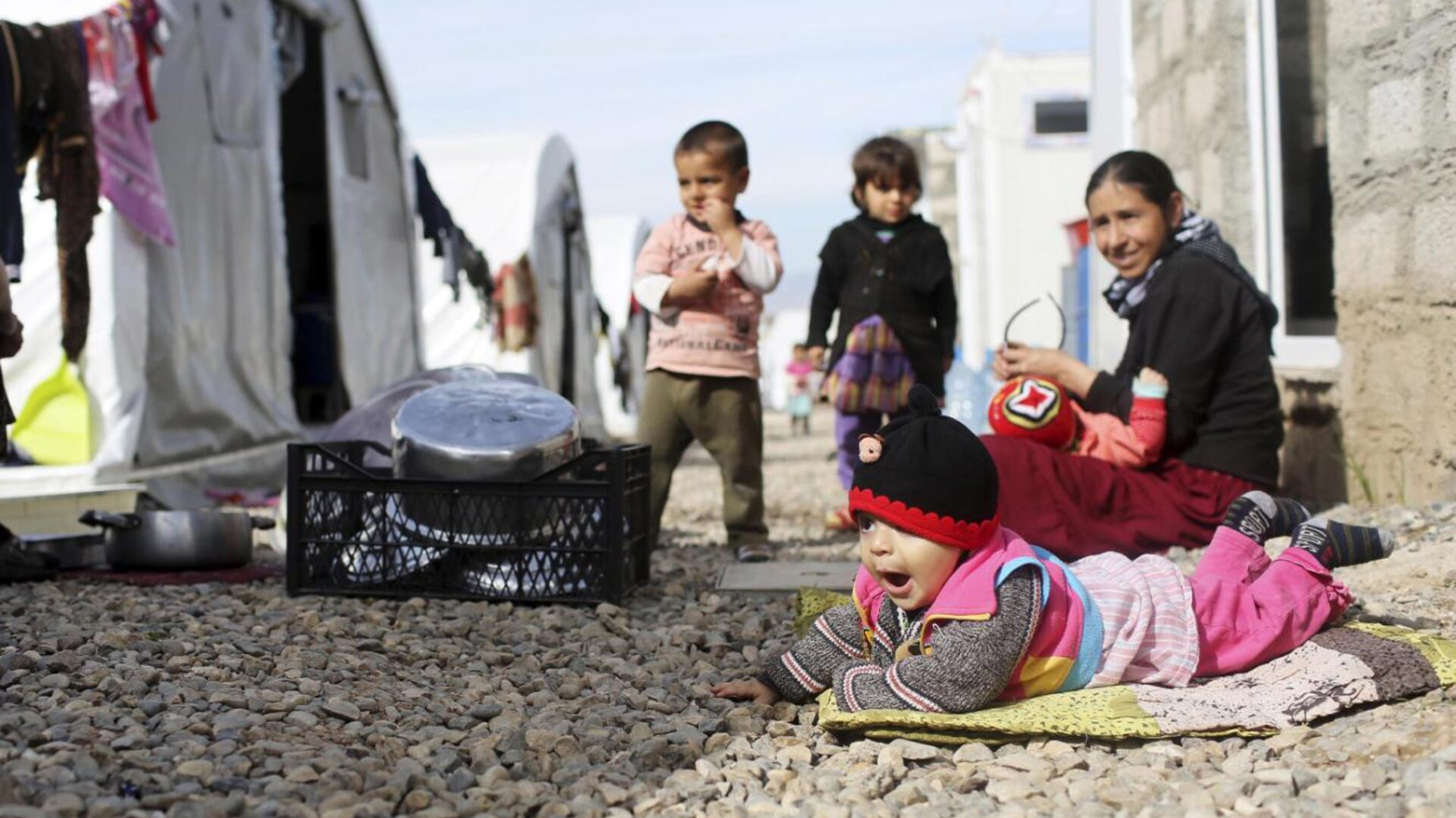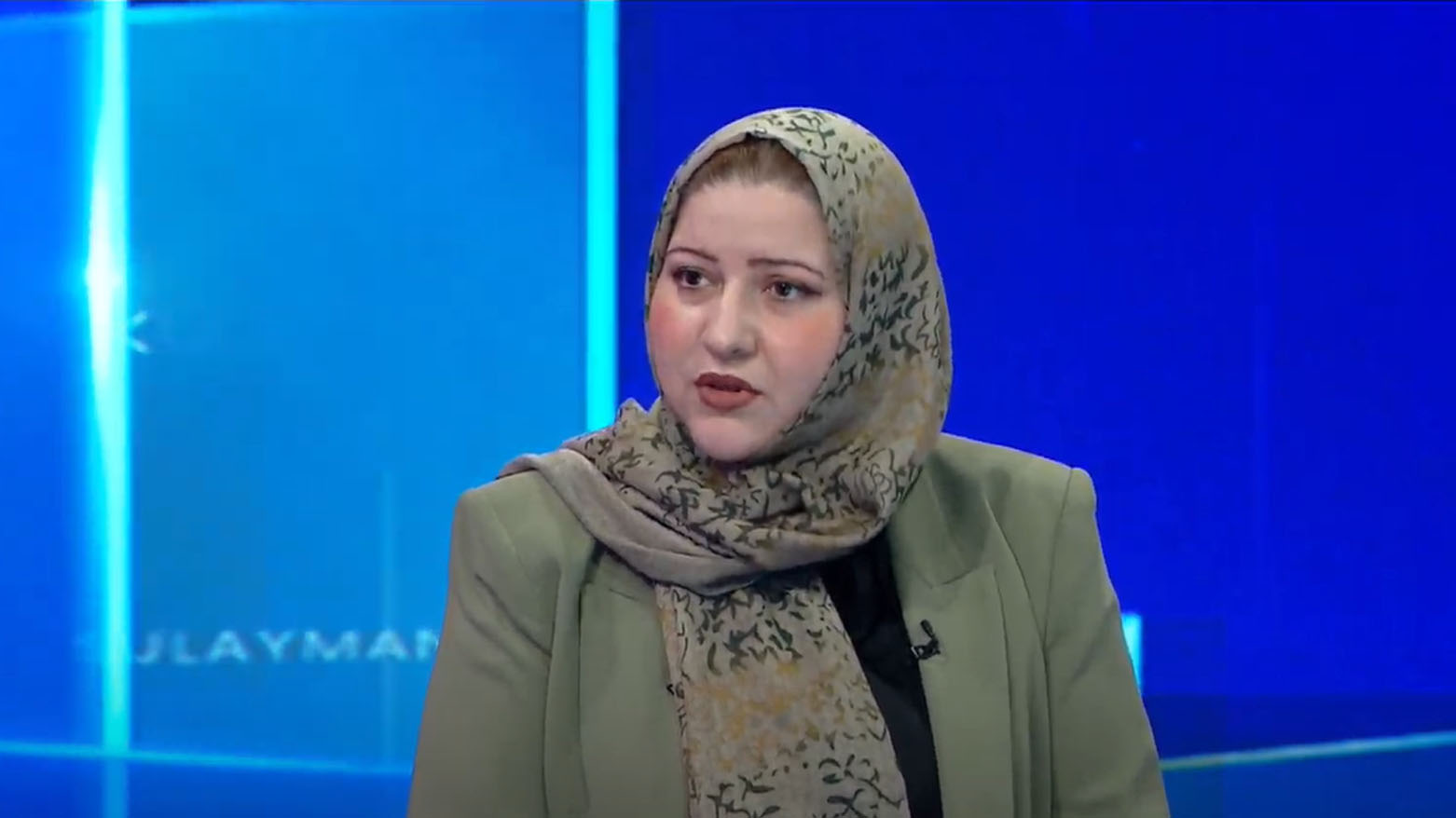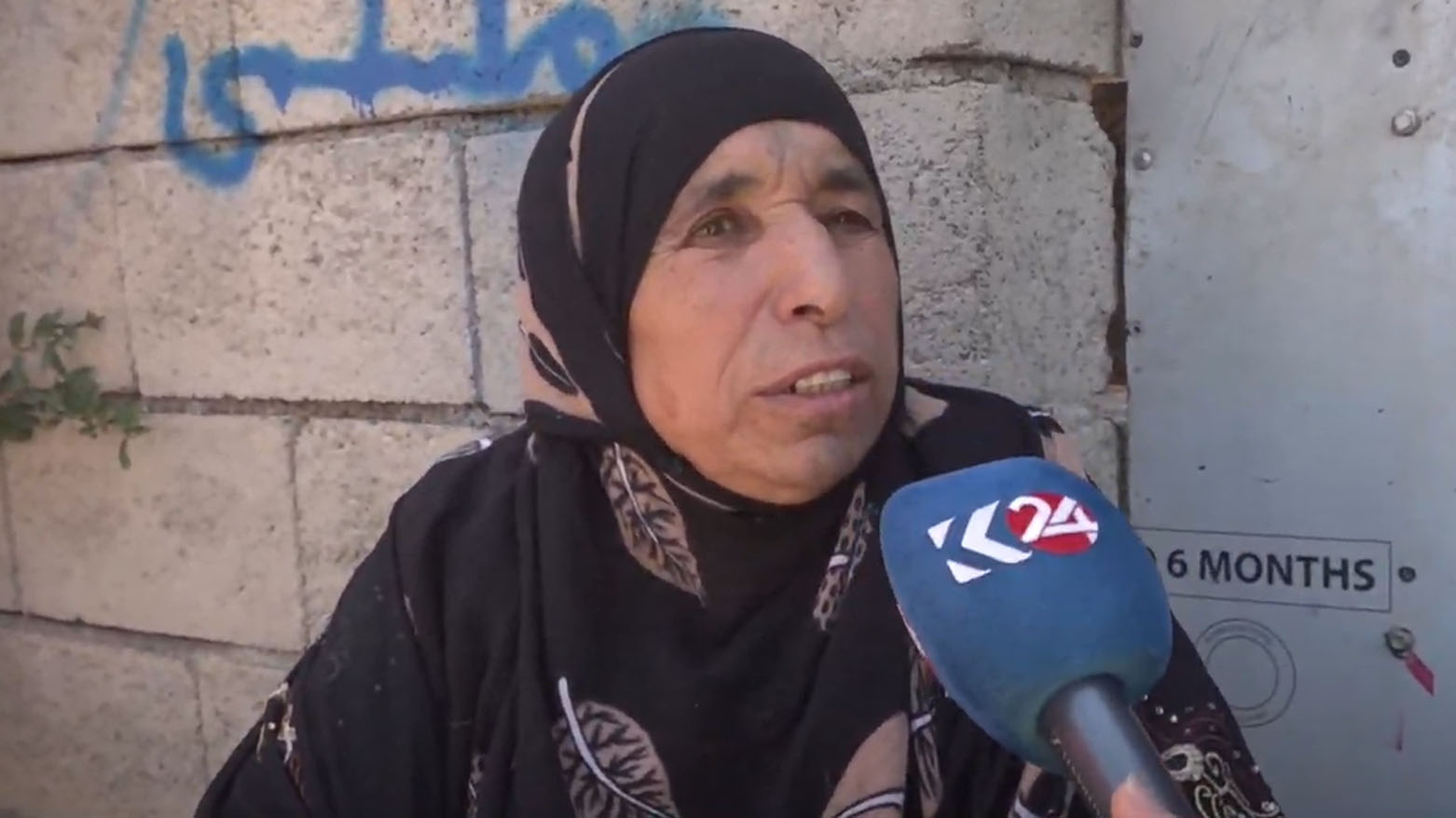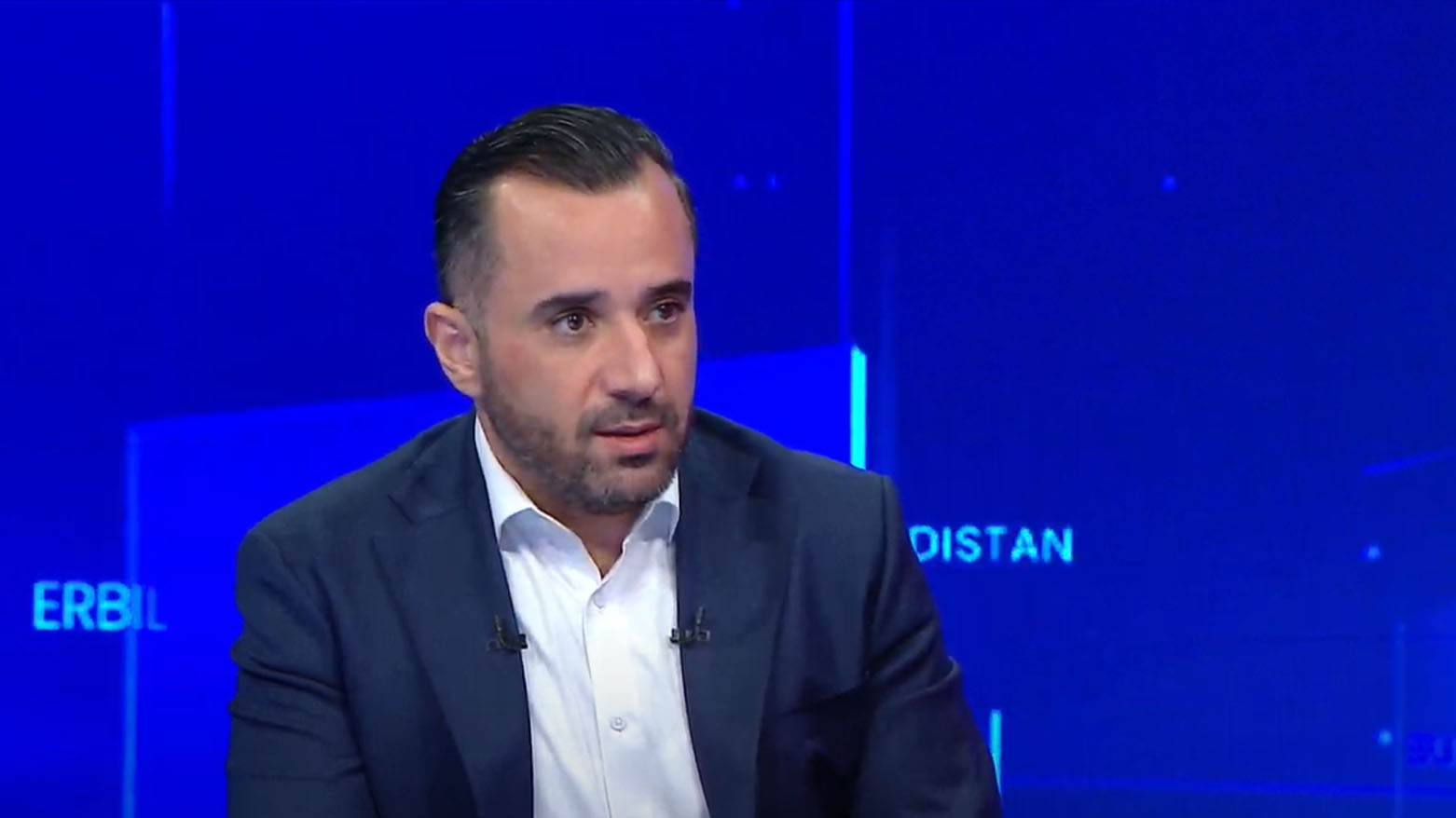KRG Official Slams Baghdad's 'Catastrophic' IDP Policy
Head of JCC Srwa Rasul slams Baghdad's IDP policy as a 'catastrophe' for ethnic and religious components. Displaced persons cite a lack of stability and services for not returning, while the KRG accuses the federal government of forcing demographic change in violation of the constitution.

ERBIL (Kurdistan24) – The Director General of the Kurdistan Regional Government’s crisis response center has condemned a recent federal policy on displaced persons as "contrary to the law and the constitution," warning that its implementation would create a "catastrophe" for the region's ethnic and religious components and represents a blatant disregard for their fundamental rights. The official’s sharp rebuke comes as displaced individuals themselves cite a lack of security and basic services as the primary obstacle to returning to their homes, directly contradicting the Iraqi government's approach.
Speaking to Kurdistan24 on Friday, Srwa Rasul, the Director General of the Joint Crisis Coordination Centre (JCC) at the KRG Ministry of Interior, forcefully articulated the regional government's opposition to the Iraqi Ministry of Migration and Displacement's efforts to obstruct the voluntary return of the displaced. She noted the deep and unresolved wounds from the war against terror, stating, "to this day, thousands of victims of terror remain missing."
Rasul identified the core reasons for the prolonged displacement, pointing to failures in governance outside the Kurdistan Region. "The reason for the non-return of the displaced is due to the lack of stability and services in their areas," she explained, adding that the situation in some locations is so dire that "in the recent past, reverse displacement has occurred." She confirmed that the KRG is actively engaging with the international community on the issue and is awaiting a formal stance from global partners.
The JCC Director General emphasized the grave danger the federal policy poses to the future of ethnic and religious communities. "Its implementation would create a catastrophe and is a disregard for the rights and beliefs of the region's components," she asserted. Her statement was supported by data gathered directly from the affected populations. "According to surveys conducted among the displaced, the majority wish to return to their ancestral lands, but on the condition of protecting their dignity and stability in their areas," Rasul said, highlighting that the Kurdistan Region's long-standing culture of coexistence has resonated internationally.

These official warnings are powerfully echoed in the voices of those living in displacement camps. Kurdistan24 correspondent, Shayma Bayiz, speaking with residents of the Bahrka camp in Erbil province, captured the stark reality on the ground.
One displaced person explained their reluctance to leave the camp, stating, "We cannot return to our homeland because there are no services, not even houses to live in. The Kurdistan Regional Government and the Barzani Charity Foundation have helped us a lot, and we thank them."
Another individual, who has been in the camp since 2017 after fleeing the area around Mosul, painted a similar picture of neglect. "Our areas have no work and the services are very poor," he told Kurdistan24. "The Iraqi government has done nothing for us and does not help us, but here, all services are provided and there is stability." These accounts represent the situation for thousands; in Erbil province alone, five camps house over 9,000 displaced individuals, comprising 1,963 families.

These firsthand accounts and official warnings on Friday build upon a formal condemnation issued just a day earlier by the KRG's Ministry of Interior, which accused the Iraqi Minister of Migration and Displacement of actively engineering demographic shifts. The ministry’s strongly-worded statement on Thursday described the federal initiative as "an unconstitutional development and contrary to the basic rights of citizens," explicitly stating that the federal High Committee for Relief "has initiated the demographic change of the areas of the Christian and Yazidi components, whose original inhabitants are forced to live in camps."
The ministry provided crucial context, noting that since the war against ISIS, the Kurdistan Region has sheltered over 600,000 displaced people in 18 camps, with the support of its people, government, and international partners. It argued that instead of facilitating voluntary return, the Iraqi minister is holding meetings to deprive the displaced of this right and is "forcing them to remain as residents outside their ancestral lands" without proper study or consultation. This forced integration, the ministry asserted, constitutes illegal demographic change that violates the Iraqi constitution, UN Guiding Principles on Internal Displacement, and international humanitarian law.
The ministry's formal position was amplified by warnings from representatives of ethnic and religious components within the Kurdistan Parliament. On Thursday, Rami Nouri, a Christian Member of Parliament, told Kurdistan24 that the Kurdistan Region faces a "major demographic change" if the federal policies continue. He suggested the approach was deliberate, stating, "There is an intentional effort to harm the components," and highlighted the vulnerability of communities from the Nineveh Plain. "For several years, efforts have been made to ensure that the Chaldean, Syriac, and Yazidi components do not remain in the area," he warned.

In response to this multifaceted crisis, the KRG Ministry of Interior has put forth a series of urgent demands. It called on the federal government to immediately halt the implementation of the minister's decisions, appealed to the United Nations and international organizations to intervene, and demanded an acceleration in the implementation of the Sinjar Agreement to facilitate reconstruction and normalization. The ministry reiterated its unwavering position, insisting that any solution must be tied to the "voluntary and dignified return of the displaced according to their own will and freedom," and characterized Baghdad's policy as an "evasion of reality and the fundamental responsibility to solve the problems."
